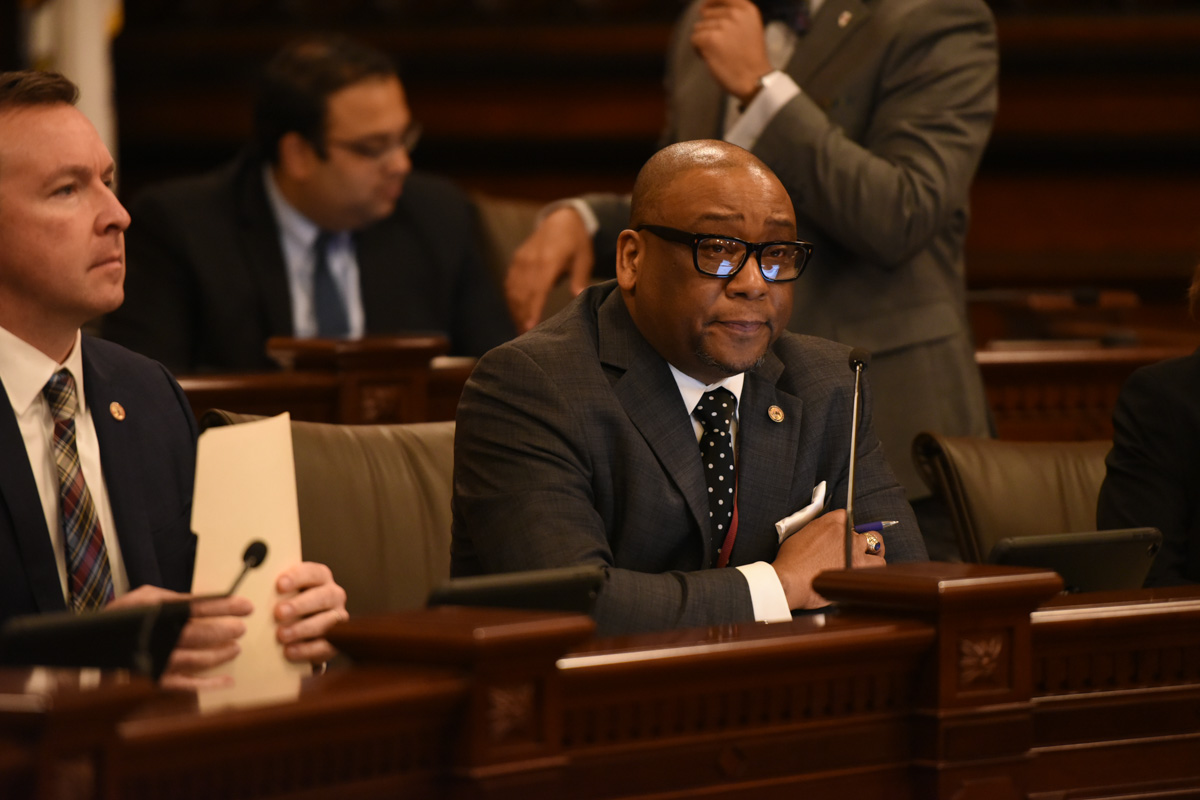Belt announces 25 local businesses to receive state business grant
- Details
- Category: Press Releases
 EAST ST. LOUIS – With so many small business owners facing economic hardship as a result of the COVID-19 crisis, State Senator Christopher Belt (D-Centreville) announced 25 local businesses will receive a combined $430,000 through the Business Interruption Grant program.
EAST ST. LOUIS – With so many small business owners facing economic hardship as a result of the COVID-19 crisis, State Senator Christopher Belt (D-Centreville) announced 25 local businesses will receive a combined $430,000 through the Business Interruption Grant program.
“I’m glad to see many local small businesses took advantage of this grant opportunity to receive some financial relief from this pandemic,” Belt said “I understand it will take more than a grant for many of these businesses to fully recover. However, this is still a great step in helping the regrowth of these businesses.”
Read more: Belt announces 25 local businesses to receive state business grant
Belt, Crowe urge Metro East residents to complete 2020 Census
- Details
- Category: Press Releases
Lawmakers concerned by low response rates in St. Clair County
 EAST ST. LOUIS – With time running out to count households and St. Clair county recording low response rates, State Senator Christopher Belt (D-Centreville) and State Senator Rachelle Crowe (D-Glen Carbon) encourage Metro East residents to complete the 2020 Census.
EAST ST. LOUIS – With time running out to count households and St. Clair county recording low response rates, State Senator Christopher Belt (D-Centreville) and State Senator Rachelle Crowe (D-Glen Carbon) encourage Metro East residents to complete the 2020 Census.
“We have to fill out the census before it's too late,” Belt said. “This simple action determines so much about the resources provided to our community. This is the first step in solving injustices, in public health, racial equity and even law enforcement. The Census Bureau needs the most accurate data in order to help us help ourselves.”
“To ensure our region is counted efficiently and allotted the necessary federal aid, every household is responsible for completing the census,” Crowe said. “If your household has responded, you can help by talking to your family members, friends and neighbors about how simple it is. It takes minutes to complete and makes a difference in our communities for years to come.”
Seven municipalities in St. Clair County and one in Madison County have a rate of 49.9% or lower on the statewide response rate list. The cities and villages included by name and rate listed are:
- Washington Park – 31.4%
- Brooklyn – 39.1%
- Venice (Madison County) – 41.9%
- Alorton – 43.1%
- East St. Louis – 44.2%
- Centreville – 49.4%
- Fairmont City – 49.7%
- Cahokia – 49.9%
Residents can complete the census for their household at www.my2020census.gov.
Belt promotes National Minority Donor Awareness Month by urging donor registrations
- Details
- Category: Press Releases
 EAST ST. LOUIS – As a recipient of an organ donation himself, State Senator Christopher Belt (D-Centreville) urges Illinois residents to register to become an organ donor to decrease the wait list of Illinois minority residents awaiting a transplant.
EAST ST. LOUIS – As a recipient of an organ donation himself, State Senator Christopher Belt (D-Centreville) urges Illinois residents to register to become an organ donor to decrease the wait list of Illinois minority residents awaiting a transplant.
“As a minority who has received an organ transplant, I understand the frustration and anticipation individuals have when needing an organ,” Belt said. “August is National Minority Donor Awareness Month, and minorities donate the least, which is why I urge minorities who are healthy to provide a blessing with an organ donation.”
Read more: Belt promotes National Minority Donor Awareness Month by urging donor registrations
Belt supports IDHS new mental health programs
- Details
- Category: Press Releases
 EAST ST. LOUIS – State Senator Christopher Belt (D-Centreville) applauds the Illinois Department of Human Services for creating three new mental health programs for Illinoisans in need of help during a challenging time.
EAST ST. LOUIS – State Senator Christopher Belt (D-Centreville) applauds the Illinois Department of Human Services for creating three new mental health programs for Illinoisans in need of help during a challenging time.
“The COVID-19 virus has not only hurt people’s physical health — it has also diminished the mental health of many,” Belt said. “Providing residents with mental health resources will support them during the overwhelming stress of the pandemic.”
More Articles …
Page 89 of 111



